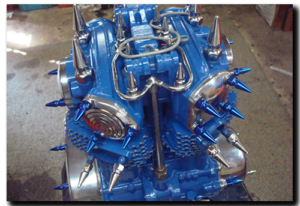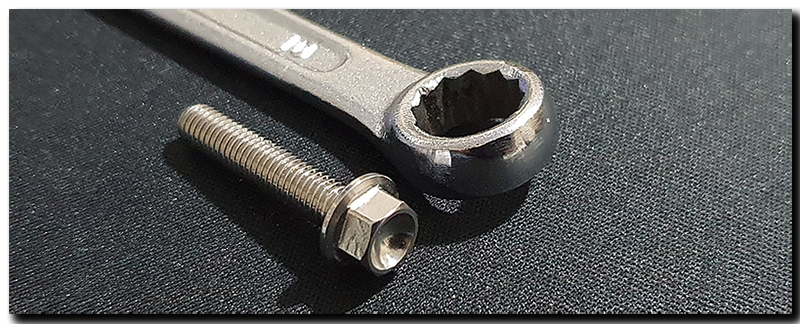 I really like fasteners, I hate rusty, corroded or damaged fasteners. There it is out in the open, plain and simple. I think there’s something tragic about lots of hard work going into an assembly, only for those old jaded screws/nuts/bolts/washers to go back into holding it together. On the other hand I’m not a fan of those OTT ‘custom fasteners’ – pike nuts etc or gaudy anodised fasters in any colour of the rainbow. For me, they are way overkill. What I want is an upgrade from the manufacturers items that were no doubt chosen with cost in mind. I like something that looks a little more up-market, in a material that is mechanically safe for the task in hand – safety has to override looks every time! They are there to do a job and complement the work that went into the parts they represent.
I really like fasteners, I hate rusty, corroded or damaged fasteners. There it is out in the open, plain and simple. I think there’s something tragic about lots of hard work going into an assembly, only for those old jaded screws/nuts/bolts/washers to go back into holding it together. On the other hand I’m not a fan of those OTT ‘custom fasteners’ – pike nuts etc or gaudy anodised fasters in any colour of the rainbow. For me, they are way overkill. What I want is an upgrade from the manufacturers items that were no doubt chosen with cost in mind. I like something that looks a little more up-market, in a material that is mechanically safe for the task in hand – safety has to override looks every time! They are there to do a job and complement the work that went into the parts they represent.
What am I upgrading then?
So as part of the brake line upgrade, I’ve swapped out the stainless steel cap heads I had holding the hose supports to the fork leg with lovely Racebolt flanged hex head ones that better reflect the items originally fitted by Aprilia. A waste of money? Quite likely. Hell the cap head bolts did the job and were also in stainless steel, but they always looked like an obvious swap – a generic item – these new bolts look like Aprilia MIGHT have fitted them if build cost wasn’t so high on the list. In the end, these things are personal and one owners pike nut is another owner duct tape … they both hold things together I guess!

Ultimately I invested in a few little upgrades … the fork axle pinch bolts went from home-drilled cap-head to lovely ‘race spec’ (drilled for lock wiring!) flange bolts and the brake/clutch master cylinder cap heads were replaced for the the none-drilled versions. Last but not least, the rear axle adjuster bolts have been upgraded to stainless steel versions.
Conclusion
After putting a fair amount and time and effort into brake lines and calipers etc. it only seemed logical to add the finishing touches by upgrading certain fasteners to ones similar (but better!) to those fitted by the manufacturer. It’s not a cheap exercise by any stretch, but it does remind me of the old saying;
Don’t spoil the ship for a ha’p’orth of tar
SPOILER ALERT – It doesn’t have anything to do with ships! Ship was dialect for sheep. The meaning is, don’t lose a good sheep by not putting a protective layer of tar on wounds or sores to prevent infection by flies etc. Over the years folk have taken ‘ship’ literally and besides, it sounds far more grandiose to think that a cheap amount of tar could cause the loss of a very expensive ship! Here endeth the lesson … 🙂





